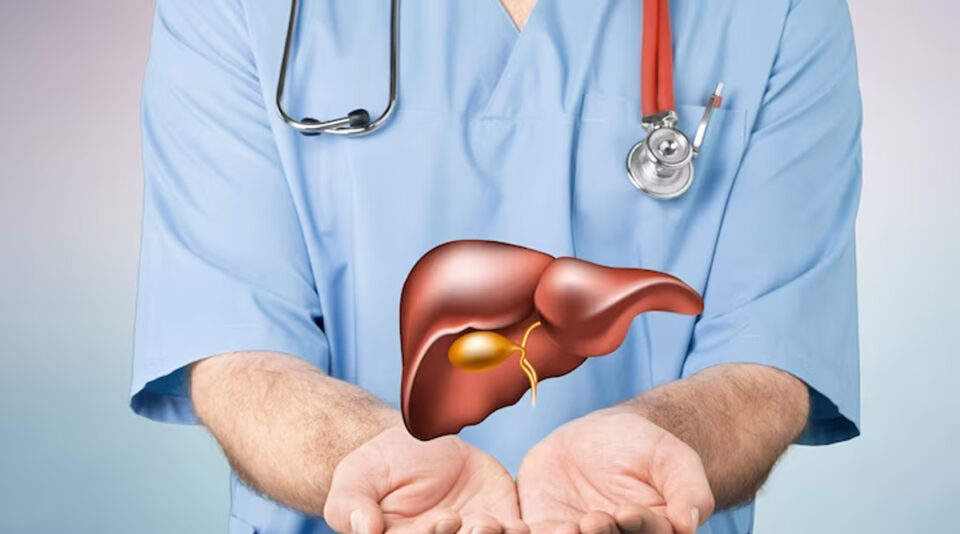Author – DR R V RAGHUNANDAN, SENIOR CONSULTANT, RADIATION ONCOLOGIST, HCG MNR CANCER CENTRE, ONGOLE
The liver is one of the most important organs in the body, providing a variety of functions that are critical for overall health. Unfortunately, it is also prone to cancer, which is divided into two types: primary and secondary liver cancer. While both types of disease affect the liver, their origins, causes, and treatment techniques are fundamentally different. In this article, we shall examine the fundamental characteristics between primary and secondary liver cancer.
Primary Liver Cancer
Primary liver cancer, commonly known as hepatocellular carcinoma (HCC), is a type of cancer that develops in the liver. It is the most frequent type of liver cancer, accounting for around 75-85% of cases. Individuals with underlying liver disease, such as cirrhosis or chronic hepatitis B or C infection, are more likely to develop primary liver cancer.
Causes of Primary Liver Cancer
- Chronic liver disease: Chronic liver disease, particularly cirrhosis, is considered to be a major risk factor for primary liver cancer. Long-term liver inflammation and injury can result in the development of cancer-causing cells.
- Viral Hepatitis: Chronic infection with hepatitis B or C viruses increases the risk of developing primary liver cancer. These viruses can inflame the liver, causing cellular alterations that contribute to cancer growth.
- Alcohol Consumption: Excessive alcohol intake over an extended period of time can damage the liver and increase the chance of primary liver cancer.
- Non-Alcoholic Fatty Liver Disease (NAFLD): NAFLD, which is often associated with obesity and metabolic syndrome, can proceed to cirrhosis, and raise the risk of liver cancer.
- Genetic Factors: Some hereditary diseases, such as hemochromatosis and Wilson’s disease, can also increase the risk of developing primary liver cancer.
Treatment of Primary Liver Cancer:
Surgical resection, liver transplant, ablation therapy, chemotherapy, targeted therapy, and immunotherapy are all possible treatments for primary liver cancer. The treatment option depends on the stage of the cancer, the patient’s overall health, and other related factors.
Secondary Liver Cancer
Secondary liver cancer, also known as metastatic liver cancer, occurs when cancer spreads (metastasizes) from another part of the body to the liver. This type of cancer is far more prevalent than primary liver cancer and can develop in a variety of organs, including the lungs, colon, breast, and pancreas.
Causes of Secondary Liver Cancer:
- Metastasis: Cancer cells can spread to the liver from initial tumors in other organs through the bloodstream or lymphatic system.
- Colon Cancer: Colorectal cancer is one of the most prevalent cancers that spread to the liver.
- Breast Cancer: In the most advanced stages of this disease, Breast cancer can spread to the liver.
- Lung Cancer: Lung cancer can spread to the liver, especially if it has progressed to an advanced stage.
- Pancreatic cancer: It has a significant potential to spread to the liver.
Treatment of Secondary Liver Cancer:
Secondary liver cancer treatment is determined by the type and stage of the underlying tumour. Surgery, chemotherapy, targeted therapy, and immunotherapy are all possible treatment options. Palliative care may be advised in some cases to manage symptoms and improve the patient’s quality of life.
While both primary and secondary liver cancer affect the liver, they are different diseases with unique causes, risk factors, and treatment options. Primary liver cancer develops within the liver and is frequently caused by chronic liver disease, viral infections, or other risk factors. Secondary liver cancer, on the other hand, is caused by the spread of cancer from another primary organ in the body. Understanding the differences between these two types of liver cancer is essential for effective diagnosis and therapy. Early detection and timely medical intervention are both essential for improving outcomes and increasing patients’ quality of life with liver cancer.


